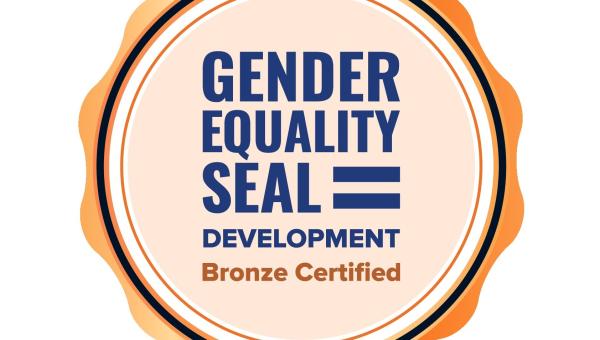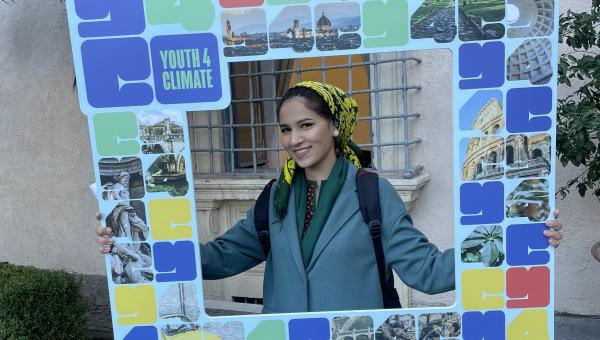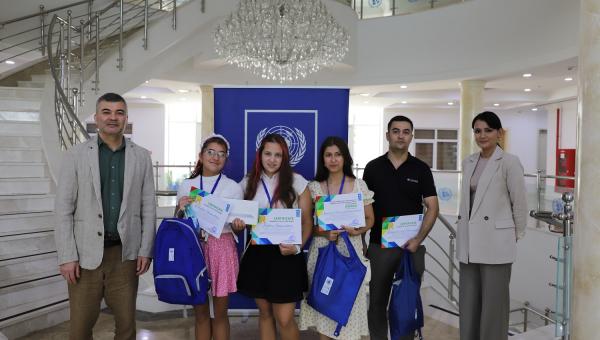UNDP Turkmenistan
GENDER EQUALITY AND WOMEN’S EMPOWERMENT
Gender equality is imperative to creating a peaceful, prosperous and sustainable future for all. Strengthening women's leadership and full participation in society, will accelerate the achievement of the 2030 Agenda for Sustainable Development.
The United Nations Development Programme (UNDP) is strongly committed to accelerating gender equality and women’s empowerment. UNDP’s Gender Equality Strategy 2022-2025, aligned with its Strategic Plan, is instrumental in fulfilling these obligations to support countries and communities to accelerate progress in achieving equal rights and opportunities between women and men.
Around the world, UNDP is working towards making economies more inclusive through accelerating women's economic empowerment. UNDP is dedicated to investing more strongly in empowering women in leadership positions, working with women peacekeepers to promote peace and stability, developing local social infrastructure, tackling the gender dimension of poverty, fighting gender-based discrimination and violence, and ensuring equal access to clean energy and resources to improve livelihoods.
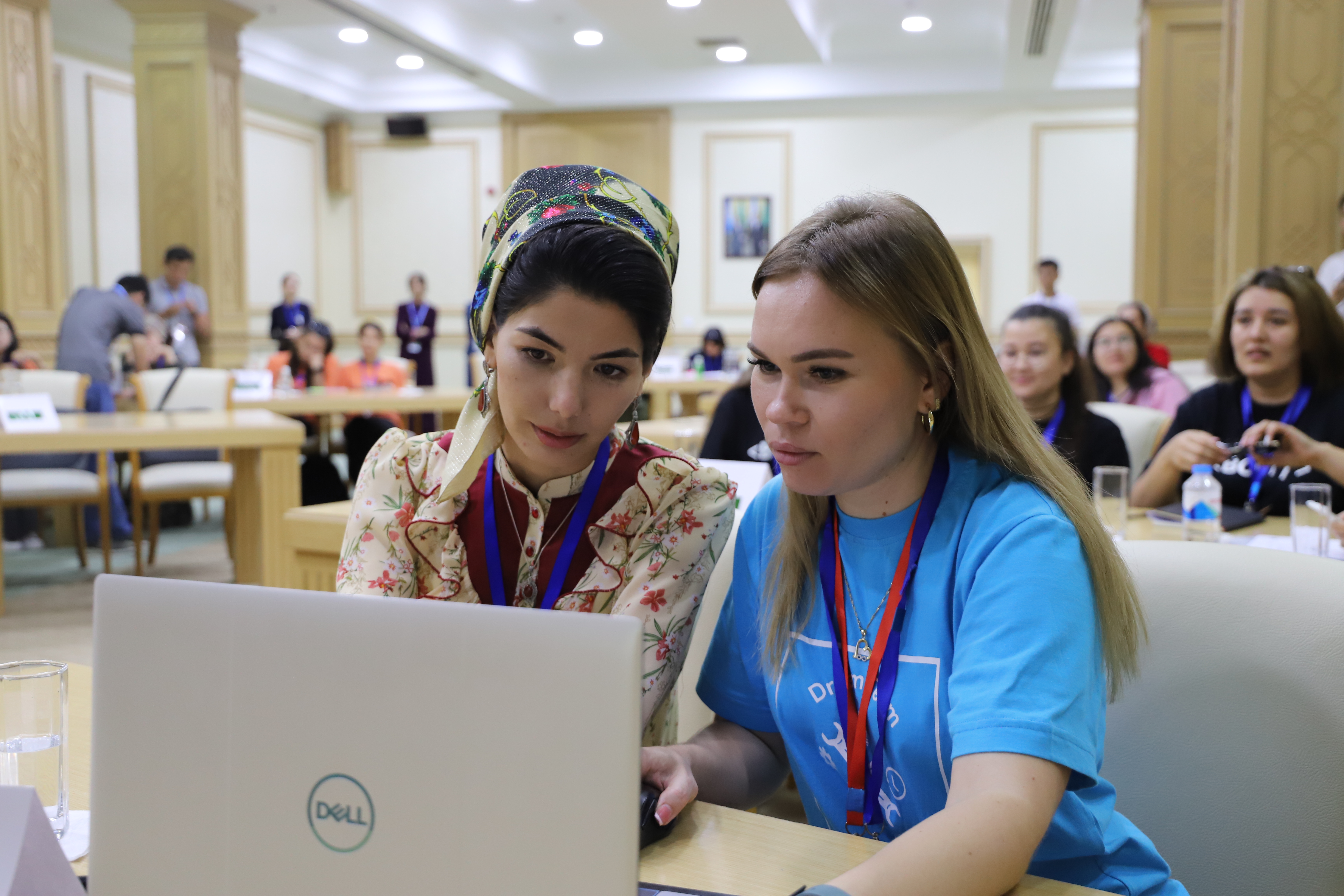
Ashgabat's first-ever Women’s Hackathon promotes gender diversity in Tech (15 August 2022).
UNDP in Turkmenistan partners with international and national stakeholders towards developing long-term solutions for women’s development through removing the structural barriers to achieving gender equality and women's economic empowerment, building gender-responsive governance and ensuring women's equal participation and leadership in political and public life.
In collaboration with the United Nations Regional Centre for Preventive Diplomacy for Central Asia (UNRCCA) and the UNDP Regional Bureau for Europe and the CIS to foster the Dialogue of Women of Central Asian countries initiated in 2020, UNDP promotes gender equality in the region of Central Asia and beyond. The Dialogue aims at strengthening women’s political, economic and social role in society and empowering them to participate in decision-making processes on issues related to peace and sustainable development.
UNDP supports the efforts of the Dialogue to enhance women’s role in countering global threats, including climate change and environmental degradation. The negative effects of climate change place an excessive burden on the most vulnerable part of the population, especially women. Through the Dialogue mechanism, women and girls are encouraged to take the leading role and become agents of change in climate change adaptation and mitigation action.

The annual final meeting of the Dialogue of Women of Central Asia under the chairmanship of Turkmenistan (10 December 2022).
UNDP in Turkmenistan supports the improvement of socio-economic opportunities for women throughout the country, especially in rural areas, helping them to adapt and become more resilient to the effects of climate change. A gender-sensitive approach is advocated for all areas of our interventions to ensure a fair share of women as key players in the fight against climate change and move towards a sustainable future.
We provide gender-specific trainings and advisory support to empower women and girls by strengthening their capacity, introducing new adaptation practices and opportunities for environmentally sustainable women-led start-ups to obtain alternative sources of income. We also create opportunities to enhance the role of women in developing local adaptation plans for rural areas.

UNDP in Turkmenistan provides gender-specific trainings and advisory support to empower women in rural areas.
In line with the UNDP mandate on gender equality, we also regularly organize events to increase the knowledge and education of women and girls in various areas, including climate-smart agriculture, entrepreneurship, innovation and digitalization. UNDP provides a platform to create innovative ideas, promote digital skills training for women and girls and encourage them to become more involved in STEM fields (science, technology, engineering and math) to bridge the digital gender divide.
Our work seeks to facilitate the exchange of ideas and experiences including promoting local STEM related events to the regional level and to raise awareness, share success stories and good practices aimed at motivating and encouraging more women and girls to pursue technical education and careers.
UNDP will continue to encourage government support and strengthen youth ICT education, as the promotion of digital skills, education and employment opportunities play a leading role in achieving economic independence and self-fulfillment of women and girls.

Removing structural barriers to women’s education and development also plays a huge role in preventing gender-based violence (GBV) by increasing the independence and self-realization of women's potential. Together with other partners, focus is given to promoting Multi-stakeholder Approach to Gender Mainstreaming Issues in Turkmenistan in line with the National Action Plan of Turkmenistan on Gender Equality (NAPGE) and recommendations of the Convention on the Elimination of All Forms of Discrimination Against Women (CEDAW). UNDP works on strengthening the system of multisectoral response based on providing a coordinated social support to the victims of gender-based violence, including health, psycho, social and police sectors of the Central Asian countries. These joint efforts are carried out in the framework of the Spotlight Initiative Regional Programme, which aims at ending sexual and gender-based violence and harmful practices in Central Asia and Afghanistan.
Rights-based and gender-sensitive approaches are also essential in ensuring good health for all. Through our health programmes we tackle gender-related disparities in access to sustainable health services and focus on improving women’s and girls’ health.
Gender equality is vital to achieving the 2030 Agenda for Sustainable Development, which envisions a world, where all people enjoy equal rights and freedoms and all legal, social and economic barriers to women’s empowerment are removed. UNDP in Turkmenistan stays committed to making gender equality and advancement of women, a basic human right and a necessity for a sustainable world, a reality. Together with partners, UNDP will further focus its work on eradicating prejudice, ending discrimination, and promoting equal rights and respect for all.
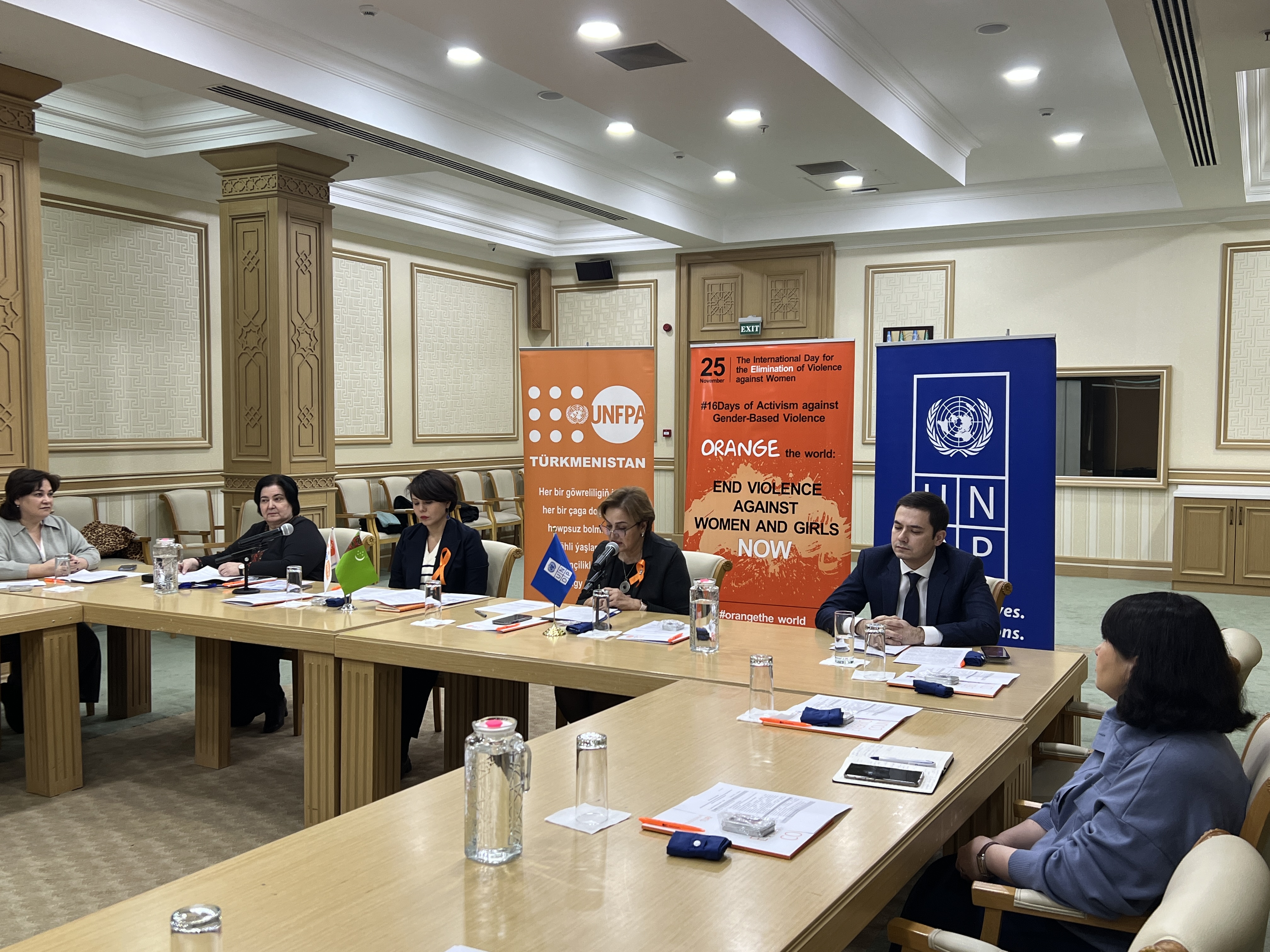

 Locations
Locations










